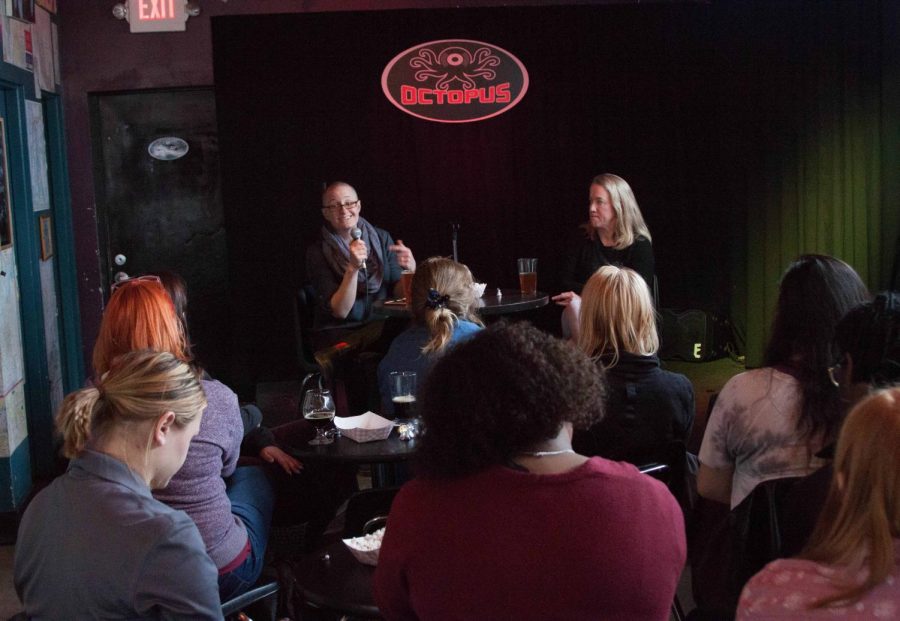Profs talk sexual ethics & consent
On Friday, March 23, the UNI Philosophy Club held Pints, Profs and Philosophy at the Octopus on College Hill. Professors Abbylyn Helgevold and Ana Kogl led discussion on sexual ethics.
Mar 26, 2018
The Octopus was the site of the Pints and Profs event held by the UNI Philosophy Club. The event’s discussion topic was sexual ethics, including good sex and the ethics of consent.
The professors at the event were Associate Professor of political science Ana Kogl and Philosophy and World Religions instructor Abbylyn Helgevold. At the event, they spoke about topics like submission and coercion, power dynamics and masculinity versus femininity.
The first question that was brought up at the event was, “Where is the line between submission and coercion?”
“What’s the power dynamic… and how is that shaping how they act in that situation?” Kogl said.
The idea of the power dynamic came up many times throughout the event.
As a part of this question, Helgevold brought up the Aziz Ansari case. The Ansari case involved the concept of submission and coercion, but is also tied to the #MeToo movement that took root late last year.
This incident brought up another point related to the idea of feminine versus masculine scripts.
“Despite the ways in which we might want to say that in heterosexual situations like this, men should be able to pick up on nonverbal cues. We also have to think about whether or not they’re fully trained to do that,” Helgevold said.
From there, the event transitioned into the question of sex being a taboo topic in our society, especially in the U.S.
This question brought up the topic of sex education and the lack of it that goes on in U.S. schools and families.
“Given the rural context of Iowa, there is a lot of resistance. It is very, very difficult to do anything but abstinence only education,” Helgevold said.
Abstinence-only education was brought up several times during the discussion. Helgevold and Kogl wanted to convey that it is better to teach safe sex rather than abstinence only.
One person in the audience said, “It seems like the schools expect the parents to teach and the parents expect the schools to teach, and neither one does it.”
After the topic of sex education, the event transitioned back into the idea of the power dynamic and consent.
“People say yes, they go along with it. It’s easier than saying no to say yes,” Kogl said. “And there could be some instances where they sign a contract. I think contracts are important, but they don’t get us far enough.”
As the event came to a close, the idea of a power dynamic really came to prominence. Helgevold and Kogl wanted the audience to think of power as a relationship and that it is a dynamic that switches depending on the situation.
“If we think of power as a relationship then we don’t back ourselves into these corners,” Helgevold said.
After the event, Connor Latteyer, a senior at UNI, had this to say: “Most kids don’t get good sex ed from school, so it’s nice to talk about how sex and dates can be a natural and good thing, especially with all of the controversy and movements going on today in America.”














